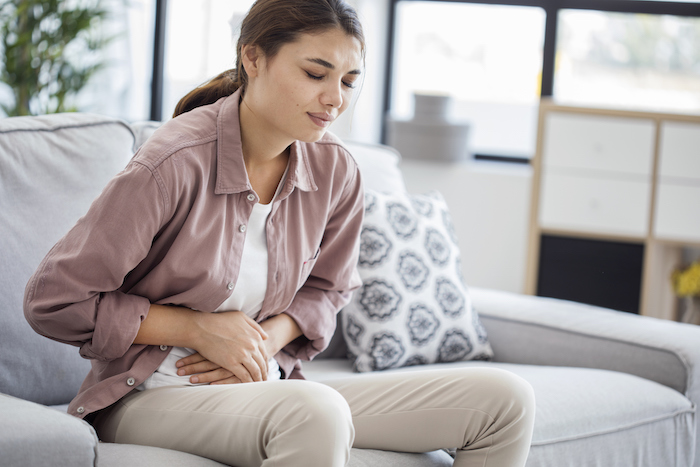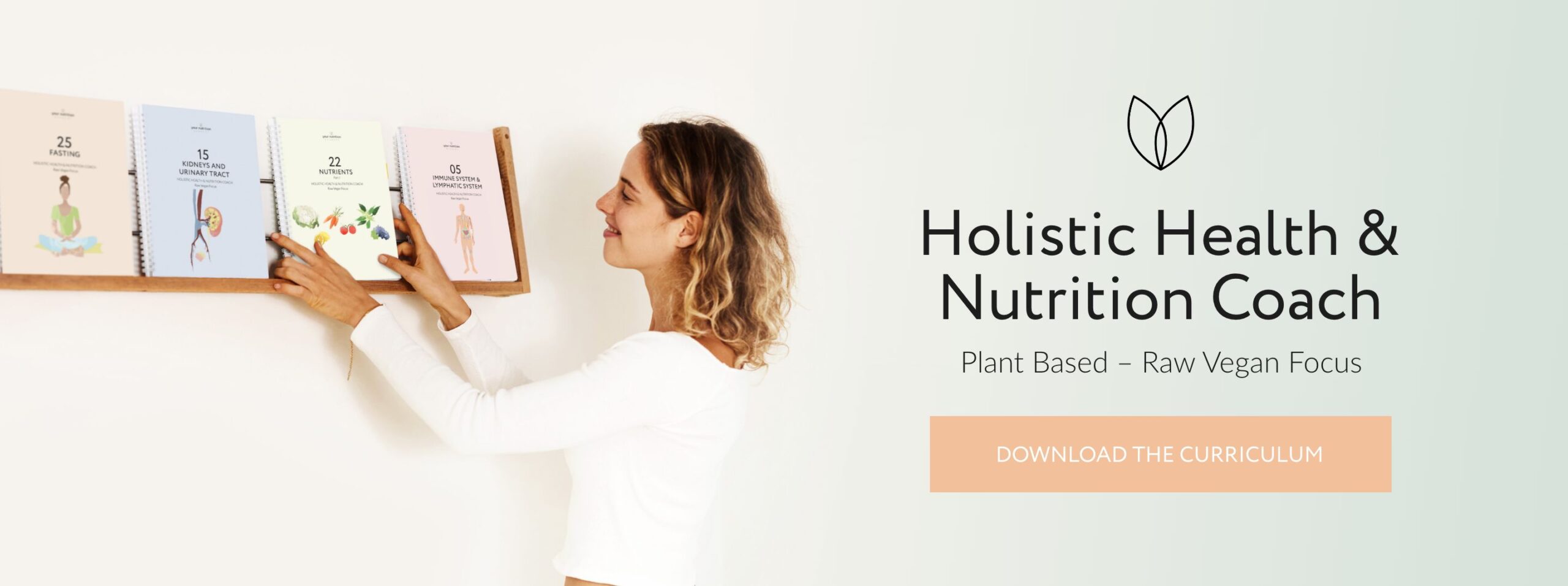Endometriosis affects a growing number of young women—an estimated 10–15 percent worldwide—and often brings with it pain and other distressing symptoms that significantly impact daily life. Despite its prevalence, there is still a lack of sustainable help for endometriosis. The causes remain unclear, and conventional treatment usually focuses only on symptom relief.
In this article, we explore holistic, natural approaches that not only help reduce discomfort but also offer deeper insight into possible root causes. Through targeted dietary recommendations, anti-inflammatory herbs, and a mindful lifestyle, there are effective ways to support the body naturally and improve quality of life in the long term.
Endometriosis – Symptoms and Impact
The term endometriosis comes from endometrium, the lining of the uterus that normally lines only the inside of the womb. In the chronic condition known as endometriosis, however, tissue similar to the uterine lining grows outside the uterus—commonly on the ovaries, in the abdominal and pelvic area, or on the intestines.
These growths can cause severe lower abdominal pain, especially during menstruation, because this tissue also bleeds during the menstrual cycle. However, since the blood cannot leave the body, it may lead to blood clots in the abdominal cavity, which can develop into blood-filled cysts. In addition to pain, endometriosis can also impair fertility.
Typical symptoms of endometriosis include pain in the lower abdomen and pelvic area, digestive issues, and even pain in other parts of the body—especially during menstruation. Because painful periods are often not immediately recognized as a sign of a specific condition, it can take many years and numerous doctor visits before a proper diagnosis is made.
Conventional Treatment Methods
Conventional medicine offers various approaches to treating endometriosis, focusing primarily on relieving symptoms and reducing the growth of endometrial-like tissue. The most common methods include the use of hormone therapy, painkillers, and surgical interventions.
Use of Hormonal Therapy and Pain Medications
Since endometriosis is hormone-dependent, hormone treatments are often used to slow the growth of the tissue and relieve pain. Common hormonal therapies include:
- Progestins: These suppress estrogen production and can slow the growth of endometrial tissue.
- GnRH analogs: These block hormone production and place the body into a temporary “menopause-like” state.
- Birth control pills: Combined hormonal contraceptives can suppress menstruation and thereby reduce painful symptoms.
However, these medications often come with side effects such as weight gain, mood swings, and hot flashes, and they may not be a long-term solution for every woman.
Additionally, painkillers (such as ibuprofen or acetaminophen) are frequently used to manage the pain associated with endometriosis. However, they offer only temporary relief and do not address the root cause of the condition.
Surgical Treatment Options
In more severe cases, or when medication is ineffective, surgery may be necessary. Common surgical procedures include:
- Laparoscopy: This minimally invasive technique involves the targeted removal or ablation of endometrial tissue. It can significantly reduce symptoms and is considered the standard procedure for endometriosis surgery.
- Laparotomy: In complex or severe cases, open surgery may be required to remove the affected tissue more thoroughly.
Although surgical interventions can relieve symptoms, they are not always long-lasting, and the tissue often returns in many women. Surgery also carries the usual risks, such as infection and scarring.
Limitations and Side Effects of Conventional Treatment
While conventional treatments can offer symptom relief and pain management, they often reach their limits. Hormonal therapies can have significant side effects, and surgical procedures don’t guarantee permanent results. Because of long-lasting side effects and the risk of recurrence, many women begin searching for holistic and natural alternatives to support their healing process.

Possible Causes of Endometriosis
To approach endometriosis holistically, it’s helpful to understand some of the underlying causes and mechanisms associated with the condition.
- Research and clinical experience suggest that hormonal imbalances, especially estrogen dominance, often play a major role in endometriosis. Estrogen promotes the growth of endometrial tissue and can worsen symptoms.
- Chronic inflammation and a dysregulated immune system also contribute, as both can lead to increased pain and inflammatory responses.
- Another important factor is oxidative stress, a state caused by an imbalance between free radicals and antioxidants, which may also accelerate the progression of endometriosis.
- In addition to these biological factors, lifestyle and diet have a major influence: a balanced, anti-inflammatory lifestyle can actively support the body and significantly ease symptoms.
An Alternative Perspective on Endometriosis
Medical Medium Anthony William offers an alternative explanation for the development of endometriosis from a holistic viewpoint. According to him, the condition represents a protective mechanism, in which tissue forms outside the uterus to shield it from toxic burdens. Since the uterus holds high biological priority in the female body, endometriosis may be a way for the body to isolate and contain harmful substances.
This perspective opens up new therapeutic approaches: instead of merely suppressing symptoms, it could be beneficial to reduce toxic load from environmental pollutants, heavy metals, and hormone-disrupting substances, and to support the body through targeted detoxification.
The following section presents holistic approaches based on these insights, offering natural ways to reduce symptoms and promote long-term well-being.
Holistic Support for Endometriosis
A holistic approach to alleviating endometriosis symptoms focuses on an alkaline, anti-inflammatory, and detoxifying lifestyle. Targeted reduction of toxic burden can help decrease inflammation and strengthen the immune system. A plant-based, nutrient-rich diet plays a central role in this process, as it not only supports hormonal balance and acid-alkaline regulation but also promotes the body’s natural detoxification processes.
The following strategies can help naturally relieve endometriosis symptoms:
Detoxification as a Foundation
Targeted detoxification can help reduce toxic load and support the healing process. It’s especially important to eliminate heavy metals, pesticides, plasticizers, and hormone-disrupting substances that may interfere with the endocrine system.
A powerful method is gut cleansing, as a healthy digestive system is essential for detox. A fiber-rich, plant-based diet supports gut health and enhances toxin elimination. Morning routines inspired by Anthony William can also be a beneficial way to start the day with gentle detoxification. Supportive herbs such as dandelion, milk thistle, and nettle promote liver function and help the body detoxify more effectively.
The Importance of an Alkaline and Anti-Inflammatory Lifestyle
An alkaline internal environment helps reduce inflammation and relieve stress on the immune system. The right food choices can support this process. Alkaline foods like leafy greens, fruits, and vegetables regulate the acid-alkaline balance and strengthen immunity. This overall relief can contribute to pain and inflammation reduction.
Why Balanced Nutrient Intake Is Essential
Adequate nutrient intake is critical for hormonal health and immune function. Vitamins, minerals, and phytonutrients from fresh, plant-based foods provide a wide range of micronutrients that may help relieve endometriosis symptoms. Key nutrients include magnesium, iron, and vitamin B6, which are particularly helpful during hormonal fluctuations and inflammation.
Focus on Plant-Based, Nutrient-Dense Foods: Fruits, Vegetables, and Leafy Greens
Fruits and vegetables offer essential vitamins, minerals, and antioxidants that combat inflammation and strengthen immune health. Leafy greens like spinach, kale, and wild herbs are especially valuable due to their bitter compounds, iron, and chlorophyll, which support detoxification. These plant-based foods also promote a healthy gut microbiome, which plays a key role in hormonal balance.
Avoiding Inflammatory Foods: Sugar, White Flour, and Trans Fats
Sugar, refined flour products, and trans fats can trigger inflammation and disrupt hormonal balance. Refined carbohydrates can cause blood sugar spikes and increase oxidative stress, while trans fats — commonly found in processed foods — impair cell health. Avoiding these ingredients reduces the risk of chronic inflammation and can ease endometriosis symptoms.
The Power of Omega-3 Fatty Acids: Nuts and Seeds as Ideal Sources
Omega-3 fatty acids have natural anti-inflammatory properties and support cell and hormonal health. Great plant-based sources include chia seeds, flaxseeds, walnuts, and hemp seeds. These help regulate hormones and reduce inflammation. Regular consumption of omega-3-rich foods may reduce endometriosis symptoms and improve overall well-being.
Benefits of Avoiding Animal Products Like Eggs, Dairy, Meat, and Gluten
Animal products — especially those high in fat and protein — can contain pro-inflammatory substances and disrupt hormonal balance. Some studies suggest that avoiding dairy, eggs, and meat may reduce inflammation and hormonal imbalances. Eliminating gluten may also help, particularly for those with intestinal sensitivity. A plant-based diet supports hormonal regulation and may offer long-term relief from endometriosis symptoms.
By integrating these holistic strategies into daily life, individuals can achieve lasting relief from endometriosis symptoms and activate their body’s self-healing potential.
Complementary Measures
In addition to nutrition, certain lifestyle practices can further support the body’s detoxification processes and help reduce inflammation.
Hydration with High-Quality Water and Fresh Vegetable Juices
Adequate fluid intake — especially filtered water and freshly pressed vegetable juices — supports the body in flushing out toxins and provides antioxidants, vitamins, and minerals that help strengthen the immune system.
Intermittent Fasting and Juice Fasting
Fasting practices such as intermittent fasting or short-term juice fasting relieve the digestive system and promote the body’s regeneration. These approaches help reduce inflammation and support better digestion.
Colon Cleansing for Improved Nutrient Absorption
A healthy gut is essential for efficient nutrient absorption. Gentle colon cleansing methods, such as enemas, can help remove waste buildup, support digestion, and strengthen the immune system.
Herbs and Other Plant-Based Remedies
Plant-based remedies can be a valuable addition to naturally reduce inflammation and support hormonal balance.
Anti-Inflammatory Herbs for Pain Relief
Certain herbs are especially effective at reducing inflammation and can help ease the symptoms of endometriosis. Turmeric is rich in curcumin, a powerful antioxidant with anti-inflammatory properties. Cat’s claw and devil’s claw are also well-known for their ability to reduce inflammation and relieve pain, particularly in chronic conditions. These herbs can be taken as teas, capsules, or extracts and may also support immune function.
Plants for Natural Hormonal Regulation
Hormonal imbalances — especially estrogen dominance — are often considered contributing factors in endometriosis. Specific plant-based remedies may help restore balance naturally. Vitex (chaste tree) is known for regulating the menstrual cycle and is frequently used for hormonal complaints. Red clover contains phytoestrogens that can gently support and balance natural estrogen levels. Wild yam offers plant-based precursors to progesterone, which may help stabilize progesterone levels and promote overall hormonal harmony.
Conclusion: There Is Help for Endometriosis
A combination of anti-inflammatory nutrition, movement, stress reduction, targeted relaxation techniques, and the use of plant-based remedies offers a wide range of possibilities to relieve symptoms and prevent discomfort. These holistic recommendations encourage self-empowerment and support overall well-being — so that endometriosis may not develop in the first place, or those affected can live symptom-free.
You’re looking for support in your own healing journey — or want to deepen your knowledge to help others on their path to health? Our unique, science-based and practice-oriented training offers you the tools and inspiration to do both.
For more information, visit our website at “Your Nutrition Academy.”








0 Comments